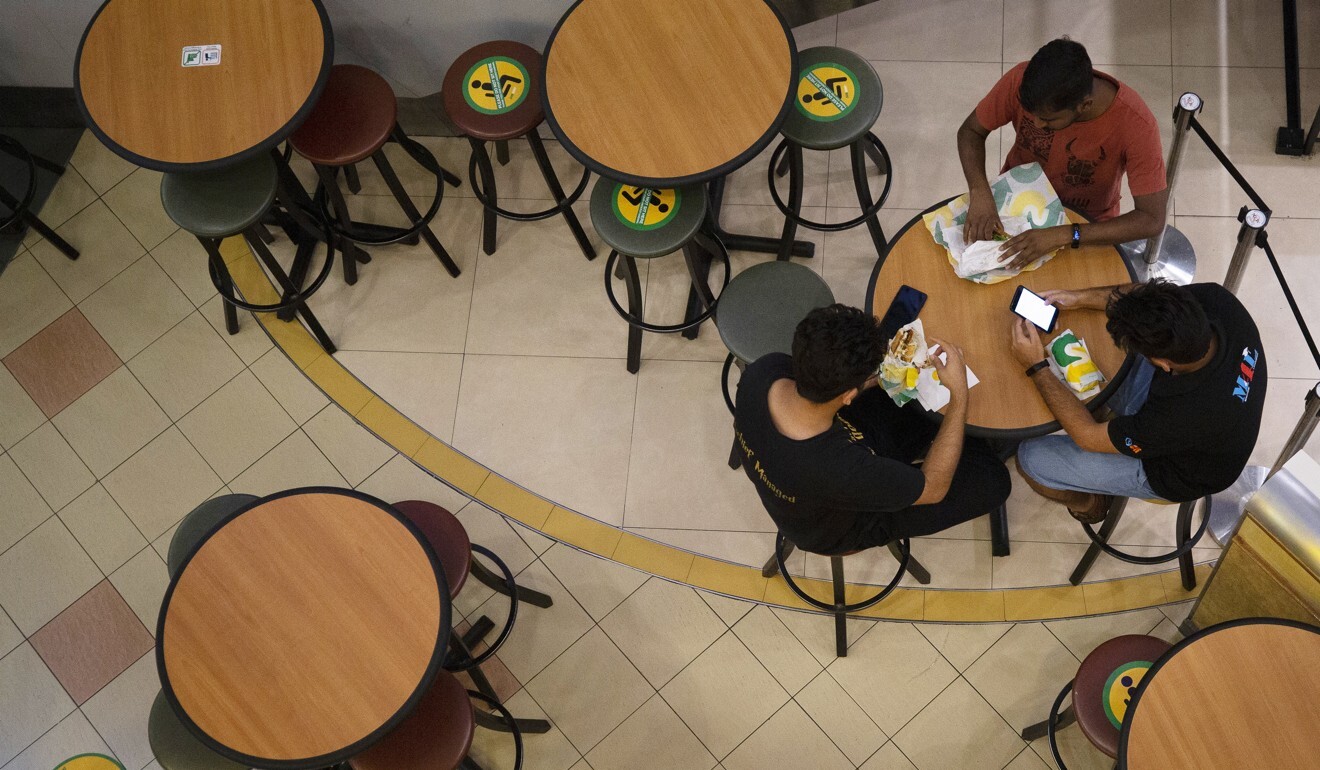
Coronavirus: Singapore mulls punishing companies for not following social distancing, telecommuting rules
- More than 30 companies have reportedly been ordered to stop work after it was found that they hadn’t been following safe-distancing measures
- The government has said it will be an offence for employers not to put in place telecommuting measures where the nature of the work permits it
Currently only some 40 per cent of workers in the city’s Central Business District are following government directives to work from home, Minister for Manpower Josephine Teo said on Wednesday.
How Singapore’s coronavirus battle plan won over its millennial voters
“This is not nearly as far as we need to go,” she said. “We want to get the message out to companies that it’s in your own interest that you minimise human contact.”
Last week the government ordered more than 30 companies to stop work immediately after it found they hadn’t been following safe-distancing measures, according to The Straits Times. It will be an offence for employers not to put in telecommuting measures where the nature of the work permits it, the authorities have said.

As far as penalties for companies that don’t follow the guidelines, “the regulations are being worked out,” Teo said on Wednesday.
“I want to emphasise this: employers must allow your employees to work from home as far as reasonably practicable. This applies to all workplaces regardless of size and it should be for all times and all days, and not some times and some days,” she was quoted by Today Online as saying.
The global pandemic has walloped the trade-reliant city state, with the Monetary Authority of Singapore now expecting the economy to contract 1 per cent to 4 per cent this year. The MAS undertook an unprecedented dual easing action earlier this week, reducing the slope of its currency band while also re-centering the band downward.
Unlike the Sars outbreak in 2003, which mainly affected the tourism and aviation sectors, “the implementation of widespread safe distancing measures means a lot of companies are impacted” this time, Teo said. “And thinking about how interconnected the supply chain is, we begin to appreciate the scale and magnitude of the impact.”

The resident unemployment rate, at 3.2 per cent in the fourth quarter, is expected to rise and wage growth is likely to ease, the central bank said recently. Struggling companies can lower pay if they need to, with management leading by example, the National Wages Council said in a statement this week.
Teo acknowledged difficulties that companies in Singapore may face in hiring foreign workers given current global travel restrictions.
Singapore PM calls for end to US-China coronavirus blame game
“Even if they have a need for the workers, they may not be able to bring on board a good number, a good enough number any time soon,” Teo said. “Whereas in a normal year you might have more cancellations of work passes on a regular basis, I think companies are re-evaluating” and trying to keep workers for longer while they wait for the situation to stabilise and they have a better sense of what to expect.

The Manpower Ministry has rolled out several measures to aid businesses outside the general budget and stimulus packages. When Malaysia tightened travel restrictions from March 18 – affecting the 300,000 or so Malaysian workers that contribute to Singapore’s economy – the city state offered to subsidise accommodation for some labourers who provide essential services.
In February, the ministry loosened some hiring rules for Chinese workers to help facilitate labour transitions between firms in Singapore without requiring the worker to exit the country.
Singapore officials have emphasised that fiscal policy will take the lead to cushion the economy from the virus outbreak. The government has unveiled two special packages of stimulus worth around 11 per cent of gross domestic product, and is reportedly ready to deploy a third package if the outbreak worsens.

